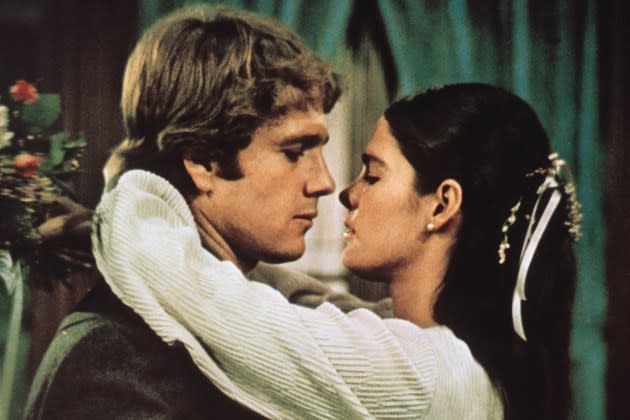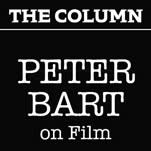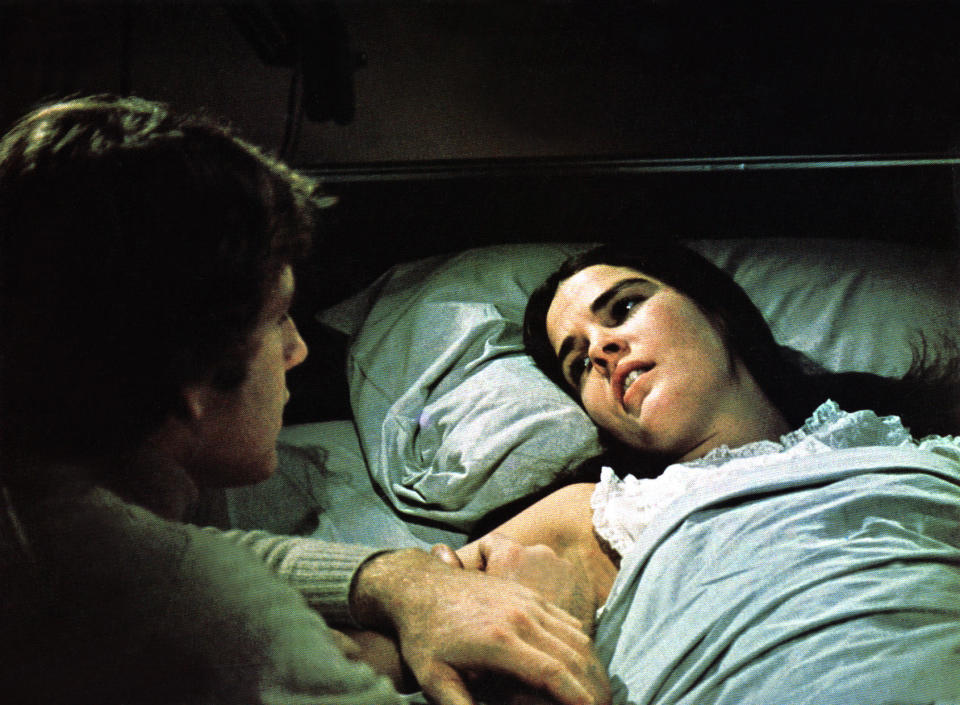Peter Bart: ‘Love Story’, The Movie Nobody Wanted To Talk About, Was A Surprise Even To Its Reluctant Star Ryan O’Neal

“Why is this like a dark secret? It’s just a movie.”

Ryan O’Neal, who died this week at 82, was a smart, good-natured man who was bemused by the contradictions of Hollywood. As he nervously awaited the release of Love Story five decades ago, he respected its shroud of silence but also was perplexed by it.
More from Deadline
“Love Story is on its own blacklist, but I don’t get why,” he observed.
The movie, of course, was the surprise hit of its year, but even the bestseller on which it was based had suddenly appeared on the “don’t talk” list.
Why the mystery?
RELATED: Remembering Ryan O’Neal: A Film & TV Career In Photos
Hollywood circa 1970 was a small town compared with the Amazon-and-Apple world of this moment, and Love Story had been preordained as an embarrassment. Every studio had rejected the screenplay, and seemingly every “money” actor had turned down the lead. The movie’s original director had walked, saying the script was “unsubstantial.” Its writer had disavowed his credit. Paramount’s corporate CEO had mandated that every dollar spent over its $2 million budget would come out of his studio chief’s pay.

O’Neal himself had been told his key scene with co-star Ali MacGraw would be reshot. It also had been rewritten with the influence of a new score.
O’Neal had spent five relatively placid years doing Peyton Place, but his shift to features now seemed like a dicey gambit.
Of course, Love Story would make O’Neal a star and lead to roles for such filmmakers as Stanley Kubrick and Peter Bogdanovich, among others.
O’Neal’s obits suggest he landed the Love Story part after an intense round of auditions. In fact, O’Neal took it as a “job,” and its new director, Arthur Hiller, a calm Canadian, agreed to use him because he had run out of options and a start date was looming.
His co-star, MacGraw, had agreed to the casting, but she lacked casting approval and had complicated the decision-making process by her surprise involvement with Robert Evans, the production chief.
In the confusion, no one had delivered the official green light, so I, as Evans’ chief subordinate, jammed through the paperwork so no one would notice.
Besides, with all its flaws, Love Story represented effective counterprogramming to the several wannabe Easy Rider successors in pre-production. A rich boy/poor girl romance seemed a good response to Midnight Cowboy, and the poignant script carried its own subtle clout that harassed story departments had missed.
But Love Story had to survive a chain reaction of disdain from story snobs. Its author, Erich Segal, decided to forego credit until his novel hit the best seller list. Writing a novel based on the script was actually the studio’s idea, not Segal’s, and the studio promoted the book heavily. Segal, once the shy professor, found he liked doing the Today show and Johnny Carson. But, he also taught classics at Yale, he felt he would lose his job now that he’d became a “pop” writer.
He was correct. He was effectively fired when Yale declined to pick up his tenure. Segal moved to the UK and made lots of money from sequels to Love Story and other films (Yellow Submarine was one).
Hollywood was good to him, he acknowledged – but it was a difficult relationship.
Best of Deadline
2023-24 Awards Season Calendar - Dates For Oscars, Emmys, Grammys, Tonys, Guilds & More
2023 Premiere Dates For New & Returning Series On Broadcast, Cable & Streaming
Sign up for Deadline's Newsletter. For the latest news, follow us on Facebook, Twitter, and Instagram.
